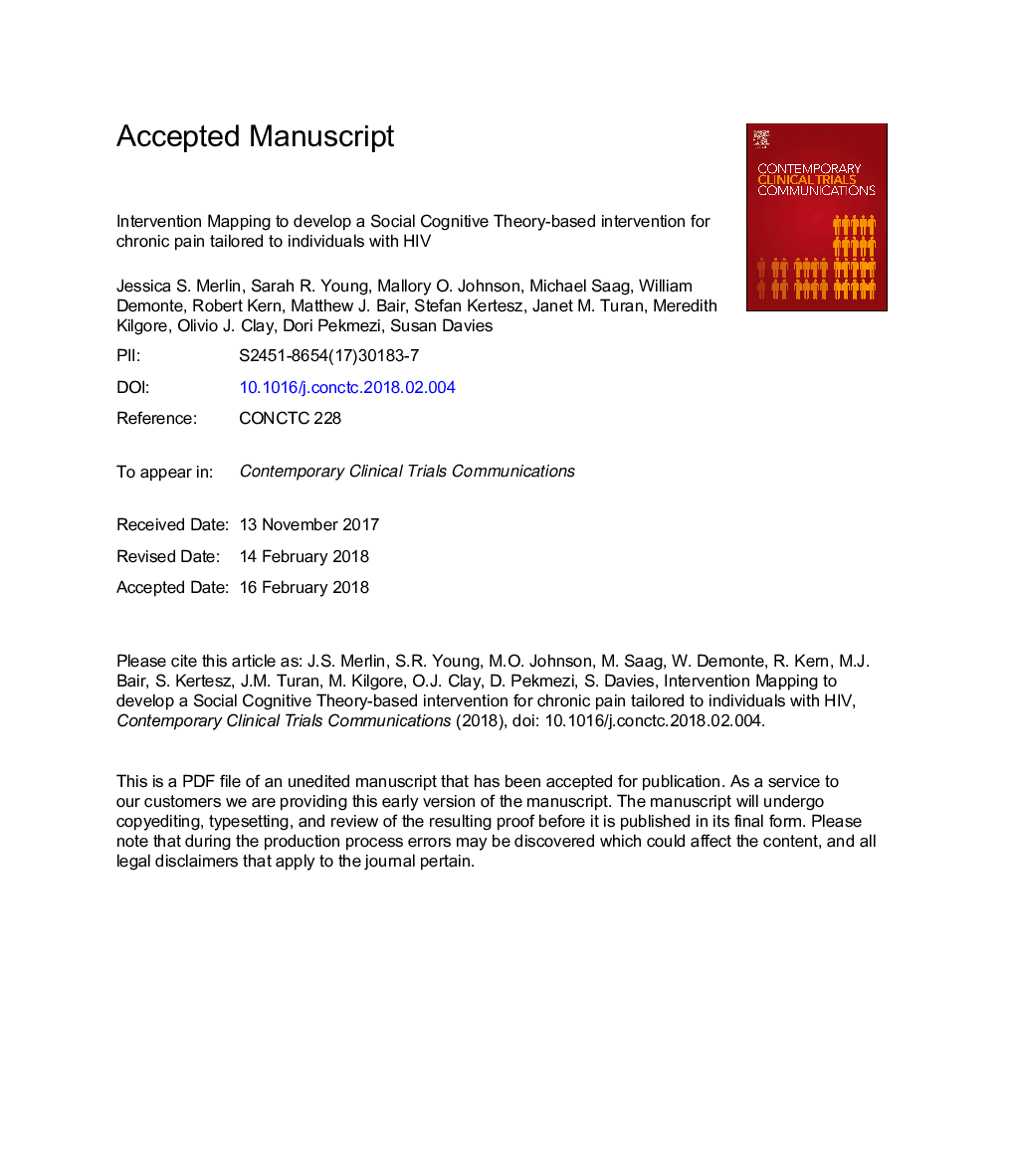| Article ID | Journal | Published Year | Pages | File Type |
|---|---|---|---|---|
| 8519224 | Contemporary Clinical Trials Communications | 2018 | 29 Pages |
Abstract
Chronic pain is an important comorbidity among individuals with HIV. Behavioral interventions are widely regarded as evidence-based, efficacious non-pharmacologic interventions for chronic pain in the general population. An accepted principle in behavioral science is that theory-based, systematically-developed behavioral interventions tailored to the unique needs of a target population are most likely to be efficacious. Our aim was to use Intervention Mapping to systematically develop a Social Cognitive Theory (SCT)-based intervention for chronic pain tailored to individuals with HIV that will improve pain intensity and pain-related functional impairment. Our Intervention Mapping process was informed by qualitative inquiry of 24 patients and seven providers in an HIV primary care clinic. The resulting intervention includes group and one-on-one sessions and peer and staff interventionists. We also developed a conceptual framework that integrates our qualitative findings with SCT-based theoretical constructs. Using this conceptual framework as a guide, our future work will investigate the intervention's impact on chronic pain outcomes, as well as our hypothesized proximal mediators of the intervention's effect.
Related Topics
Health Sciences
Pharmacology, Toxicology and Pharmaceutical Science
Pharmaceutical Science
Authors
Jessica S. Merlin, Sarah R. Young, Mallory O. Johnson, Michael Saag, William Demonte, Robert Kerns, Matthew J. Bair, Stefan Kertesz, Janet M. Turan, Meredith Kilgore, Olivio J. Clay, Dorothy Pekmezi, Susan Davies,
